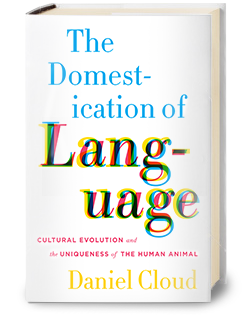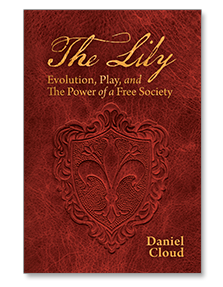The Lily: Evolution, Play, and the Power of Free Society by Daniel Cloud
Why does a free society work so well? Are civil rights really indispensable for full modernity? Must we be free because we're prescient, or because we're blind? This book is intended as a contribution to the genre that includes Mill's On Liberty and Locke's Second Treatise of Government.
Why the Oracle is Cryptic
You sometimes hear people say that things would be better if only America were more like China, because without all this democracy and freedom, they can really get things done over there, can really commit to solar power, or nuclear fission, or budgetary discipline, or whatever the person thinks we need more of. Are they right? Historically, absolutely not. Freedom works. People are always saying that kind of thing - Stalin is the future, Louis XIV is just the sort of powerful monarch we should have here in England, the Spartans aren't soft like we Athenians, etc., etc., on and on. In the last four centuries, however, there are very few cases of an illiberal society permanently defeating or outcompeting a liberal one. But why?
Conventional wisdom assumes that it's competition in the market for explicit, rational ideas and plans of action that gives liberal societies their advantage. We must be free because we always are in a position to know what should be done, and just need the liberty to do it. Watching democracy in action, however, soon reveals that many of the plans actually proposed seem to be useless or even counterproductive, that the system in aggregate displays intransitive, inconsistent preferences, and that the people who lead democracies often seem remarkably unimpressive. It's precisely these features that made many Athenians or Florentines doubt that a free society was really a viable option. In their times and places, they were, as it turned out, right. What is it that makes the modern free society, in the last four hundred years, so much more successful? To answer this question correctly, we have to step back a bit, and look at the problem from thirty thousand feet.
Continue reading "Why the Oracle is Cryptic" by Daniel Cloud, Ph.D.
Publisher: Laissez Faire Books (2011)
Language: English
ISBN-10: 0983541418
ISBN-13: 978-0983541417


